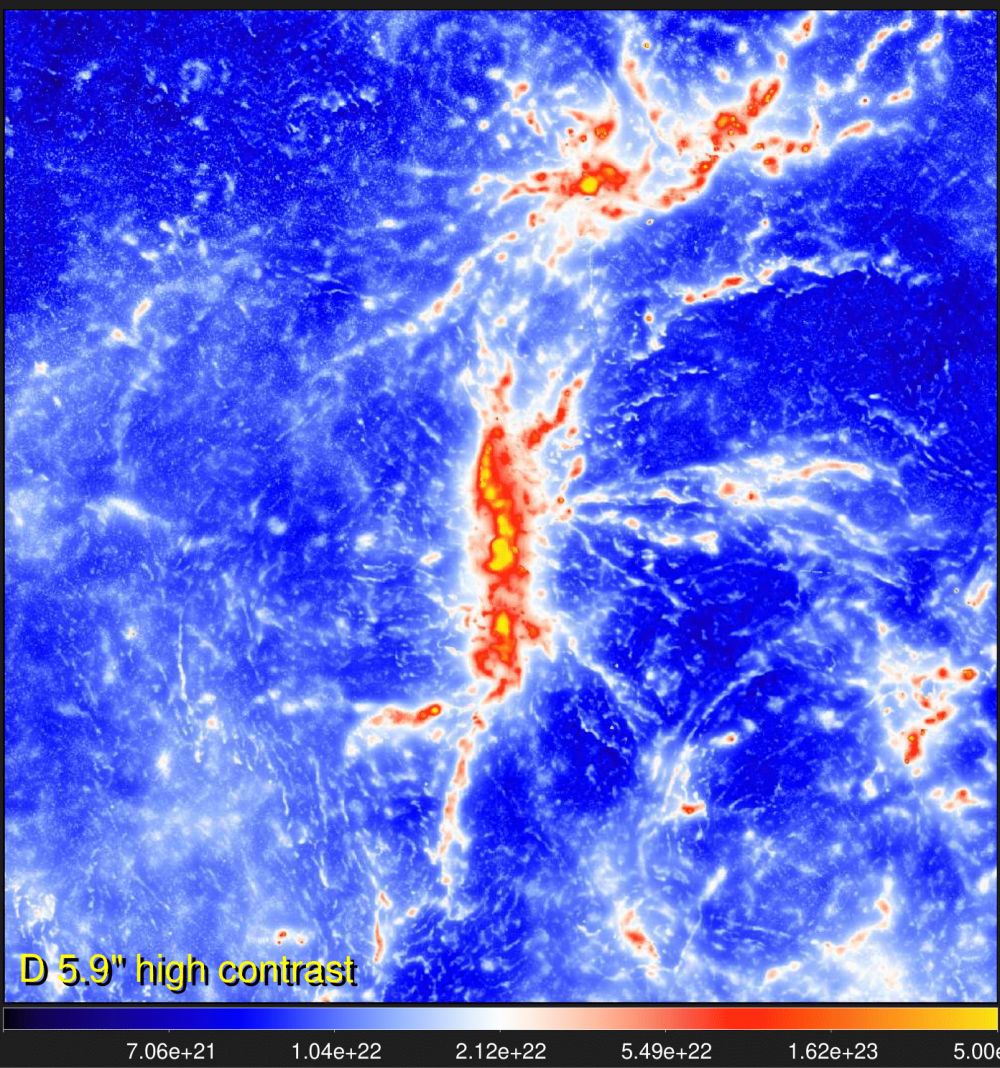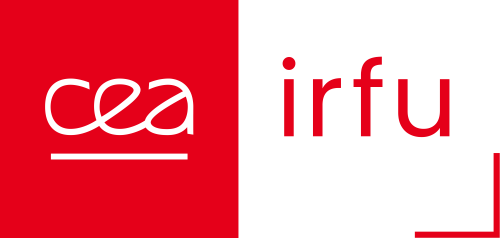A Multiscale, Multiwavelength Method and Code
for Extraction of Sources and Filaments in Astronomical Images
using Separation of their Structural Components: getsf
by Alexander Men'shchikov

High-resolution (6") surface densities in a Cygnus X sub-field (DR21), derived from the images, observed with Herschel Space Observatory in the frame of the HOBYS key project (Motte et al. 2010).
This page highlights a new method, called getsf, for extracting sources and filaments in astronomical images using separation of their structural components, designed to handle multiwavelength sets of images and very complex filamentary backgrounds. The method is universal, it works for any images with non-zero background or noise fluctuations, including the images obtained by ALMA and other interferometers, and it is not limited to any particular area of the astronomical research.
The code is freely downloadable from its own web site: http://irfu.cea.fr/getsf/.
The main processing steps of getsf are:
(1) preparation of a complete set of images and derivation of high-resolution surface densities,
(2) separation of the structural components of sources, filaments, and backgrounds,
(3) flattening of the residual noise and background fluctuations for sources and filaments,
(4) combination of the components of sources and filaments over several wavebands,
(5) detection of sources and filaments in the wavelength-combined images,
(6) measurements of the properties of detected sources and filaments.
The getsf method is fully automated, with a single user-definable free parameter: the maximum size of the structures of interest to extract. Its internal parameters have been calibrated and verified in numerous tests, using various images (both simulated and observed ones), to ensure that it works well in all cases. It provides superior extraction qualities over the older methods: getsources (Men'shchikov et al. 2012), getfilaments (Men'shchikov 2013), and getimages (Men'shchikov 2017).
• Thèmes de recherche du Service d'astrophysique › Data-SAp Thèmes de recherche du Service d'astrophysique › Modélisation-SAp
• Institut de recherche sur les lois fondamentales de l'Univers (Irfu) • Le Département d'Astrophysique (DAp) // UMR AIM • Department of Astrophysics (DAp) // UMR AIM
• Formation des Etoiles et du Milieu Interstellaire • Star Formation and Interstellar Medium



